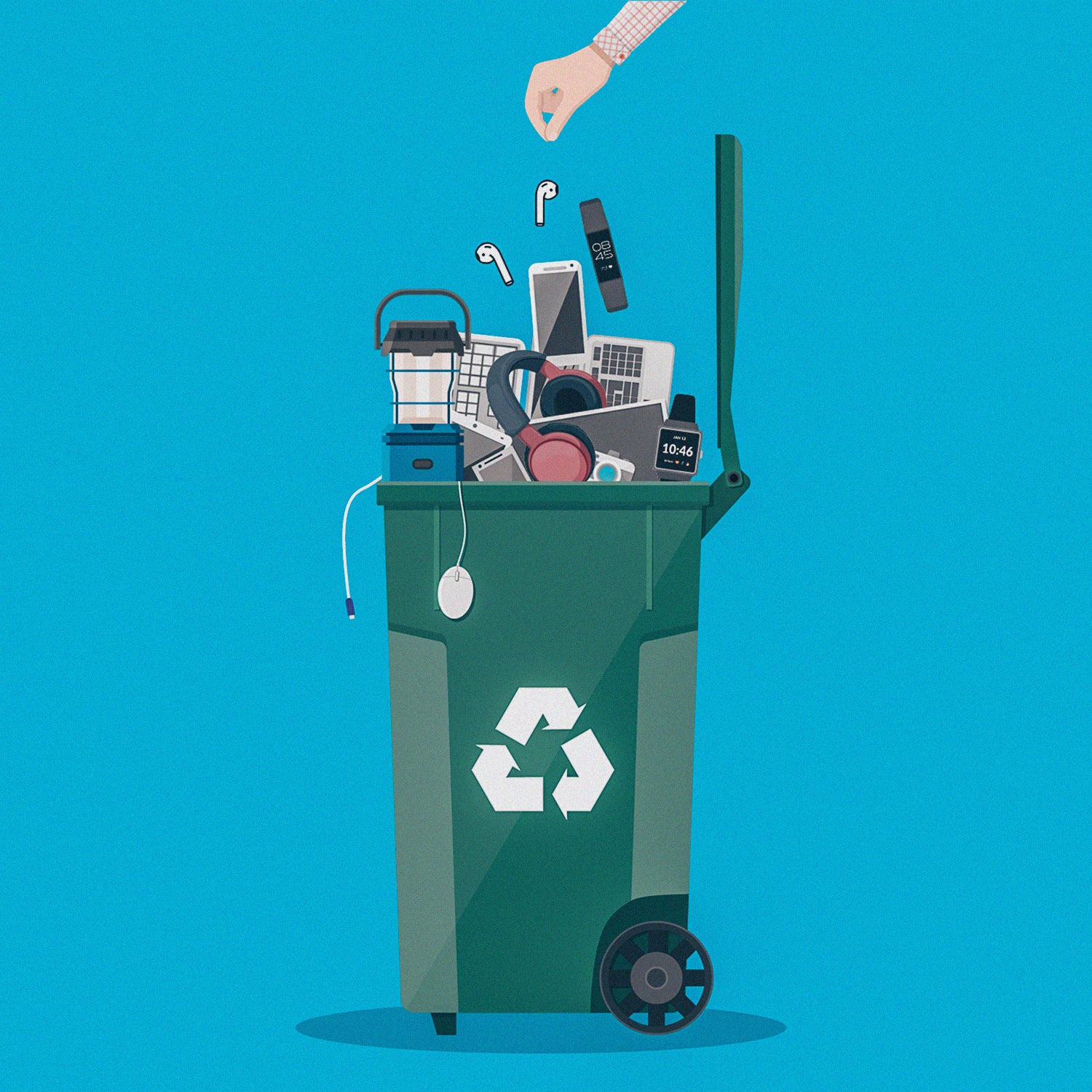Trustworthy Electronics Recycling Solutions: R2 Certification Establishes the Standard
Trustworthy Electronics Recycling Solutions: R2 Certification Establishes the Standard
Blog Article
Master the Requirements of R2 Qualification to Make Sure Sustainable Service Practices
At the forefront of this movement is the R2 certification, a rigorous standard that establishes the bar high for electronics recyclers and refurbishers. As organizations aim to straighten with environmentally aware practices, grasping the requirements of R2 accreditation is extremely important. In a globe where sustainability is no much longer a plain buzzword but a business crucial, diving into the ins and outs of R2 qualification is a strategic relocation that can pave the means for lasting success and favorable ecological effect.
Relevance of R2 Certification
Attaining R2 Certification is critical for organizations intending to show their commitment to lasting and liable electronic waste management techniques. This accreditation, created by SERI (Lasting Electronics Recycling International), sets the requirement for liable reusing practices in the electronic devices sector. By obtaining R2 Qualification, organizations signal to their stakeholders that they adhere to rigid ecological, health and wellness, and safety and security guidelines while handling digital waste.
One of the essential reasons R2 Qualification is very important is its emphasis on sustainability. With digital waste being a considerable international issue, businesses require to display their dedication to decreasing the environmental effect of their operations. R2 Accreditation calls for firms to implement processes that ensure the correct handling, refurbishment, and recycling of digital waste, thus adding to the circular economic situation and decreasing the buildup of e-waste in land fills.
Moreover, R2 Accreditation boosts a business's track record and reliability. In today's eco conscious market, customers and partners are significantly aiming to work together with organizations that prioritize sustainability. By achieving R2 Certification, business can distinguish themselves as leaders in accountable e-waste monitoring, obtaining an affordable side and attracting similar stakeholders.
Secret Elements of R2 Requirements

Steps to Obtain R2 Qualification
To qualify for R2 Qualification, organizations need to meticulously demonstrate conformity with a set of rigorous requirements and guidelines. The procedure of getting R2 Accreditation entails a number of crucial steps.
Next, businesses need to examine their present practices and procedures to determine any gaps that need to be resolved to fulfill the R2 Standard. This may include executing new procedures, purchasing training programs, or making changes to existing operations. Once any deficiencies are corrected, companies can continue to develop an extensive monitoring system that straightens with the R2 needs.
Following the implementation of the essential adjustments, organizations should undergo a third-party audit to verify their compliance with the R2 Requirement (r2 certification). This audit is conducted by a recognized accreditation body and consists of a detailed evaluation of the organization's facilities, procedures, and documentation. Upon effective conclusion of the audit, organizations can get their R2 Qualification, showing their dedication to liable and lasting business techniques
Advantages of R2 Compliance
Businesses that follow R2 conformity criteria can unlock a myriad of advantages in today's lasting organization landscape. One of the main advantages of R2 compliance is improved credibility and reputation. By fulfilling the extensive requirements of the accreditation, firms can demonstrate their dedication to accountable digital waste linked here monitoring, which can infuse trust amongst companions, customers, and stakeholders. Furthermore, R2 compliance can bring about cost financial savings with enhanced performance in handling electronic waste. By carrying out appropriate recycling and refurbishment methods, services can minimize garbage disposal expenditures and possibly generate income from recuperated products. In addition, R2 conformity promotes ecological sustainability by guaranteeing that electronic waste is taken care of in an eco pleasant fashion, reducing the influence on landfills and natural resources. This dedication to sustainability can likewise draw in environmentally conscious customers and companions, giving a competitive edge on the market. On the whole, accomplishing R2 conformity not just aids services satisfy regulatory demands however additionally fosters a culture of ecological duty and operational quality.
Maintaining R2 Qualification
Showing a continued dedication to accountable electronic waste management methods, companies have to concentrate on the precise process of preserving R2 accreditation. Maintaining R2 accreditation entails normal audits, inner testimonials, and continuous enhancement efforts to guarantee conformity with the strict needs stated by the browse around these guys Responsible Recycling Practices (R2) requirement. Organizations should remain watchful in monitoring their electronic waste management processes, information safety and security actions, and general environmental efficiency to maintain their R2 certification standing.
Regular training and education for workers are necessary to preserve R2 certification, as personnel need to be knowledgeable concerning the current best techniques and market requirements. Maintaining in-depth documents and documentation of electronic waste recycling activities, downstream suppliers, and interior procedures is crucial for demonstrating compliance throughout audits.
Moreover, companies should actively involve with their supply chain companions and vendors to guarantee that all entities associated with the electronic waste monitoring process abide by R2 requirements. By fostering a culture of openness, liability, and constant renovation, companies can efficiently maintain their R2 accreditation and maintain their dedication to lasting service practices.
Conclusion
/cdn.vox-cdn.com/uploads/chorus_image/image/63699193/recycle.0.1549465291.0.png)
Achieving R2 Certification is important for services aiming to show their commitment to sustainable and accountable digital waste administration techniques. By acquiring R2 Accreditation, services signal to their stakeholders that they adhere to rigid environmental, health and wellness, and safety guidelines while managing electronic waste.
Upon effective conclusion of the audit, organizations can receive their R2 Accreditation, demonstrating their dedication to accountable and lasting service practices.
Maintaining R2 accreditation involves routine audits, inner testimonials, and continual enhancement initiatives to make sure compliance with the strict requirements set forth by the Responsible Recycling Practices (R2) requirement. By understanding the key elements of R2 requirements, taking the essential actions to acquire accreditation, and gaining the benefits of R2 compliance, services can demonstrate their dedication to accountable electronic waste administration.
Report this page